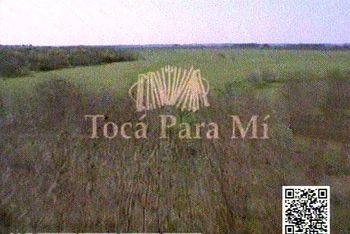Difference between revisions of "Tocá para mí"
Gomselmash11 (talk | contribs) |
Gomselmash11 (talk | contribs) |
||
| Line 14: | Line 14: | ||
</font> | </font> | ||
| − | Punk musician Carlos decides to set out to find out about his family history when his adoptive father Genaro dies. He leaves Buenos Aires with the bandoneon of Genaro as his only company and sets out for Los Angeles, a wind-shaken village in the middle of nowhere of the huge Argentinian pampa. After some troublesome quest, he finds there not only the secret of his origin, but also the love of this life and his own tune, which combines his past as punk drummer with the traditional elements borrowed from cumbias, chamamés, and criollo valses. | + | Punk musician Carlos decides to set out to find out about his family history when his adoptive father Genaro dies. He leaves Buenos Aires with the bandoneon of Genaro as his only company and sets out for Los Angeles, a wind-shaken village in the middle of nowhere of the huge Argentinian pampa. After some troublesome quest, he finds there not only the secret of his origin, but also the love of this life and his own tune, which combines his past as punk drummer with the traditional elements borrowed from cumbias, chamamés, and criollo valses. Precisely, the first hour of the film, which presents the initiatory journey of Charles and colorful details of the village, is brilliantly achieved, with a plastic visual and rhythmic power not very common in our cinema. But all in danger all the time due to the lack of expression (innate or worked) in the lead actor, Hermes Gaido. We have a story where the protagonist reacts, rather than actions. Someone who does not know what to do with your life and what evidence is not doing virtually nothing for the goal it set out to find his identity, except in the last half hour of the film. |
| + | |||
| + | An interesting note is that most of the cast comes from the province of Cordoba, with outstanding work as a truck driver Toto Lopez cuartetero and whoremonger, and very good composition of Fabiana, the tourer with rustic angel face, played by Maria Laura Frigerio. | ||
| + | |||
== [[:Category: | ]] == | == [[:Category: | ]] == | ||
Revision as of 04:20, 28 February 2012
Movie (2001)
Other titles: Play for Me (USA), Spiel für mich (Germany)
Starring:
Hermes Gaido (The Punk)
María Laura Frigerio (The Prostitute)
Alejandro Fiore
Emilio Urdapilleta
Bernardo Perco
Colomba
Punk musician Carlos decides to set out to find out about his family history when his adoptive father Genaro dies. He leaves Buenos Aires with the bandoneon of Genaro as his only company and sets out for Los Angeles, a wind-shaken village in the middle of nowhere of the huge Argentinian pampa. After some troublesome quest, he finds there not only the secret of his origin, but also the love of this life and his own tune, which combines his past as punk drummer with the traditional elements borrowed from cumbias, chamamés, and criollo valses. Precisely, the first hour of the film, which presents the initiatory journey of Charles and colorful details of the village, is brilliantly achieved, with a plastic visual and rhythmic power not very common in our cinema. But all in danger all the time due to the lack of expression (innate or worked) in the lead actor, Hermes Gaido. We have a story where the protagonist reacts, rather than actions. Someone who does not know what to do with your life and what evidence is not doing virtually nothing for the goal it set out to find his identity, except in the last half hour of the film.
An interesting note is that most of the cast comes from the province of Cordoba, with outstanding work as a truck driver Toto Lopez cuartetero and whoremonger, and very good composition of Fabiana, the tourer with rustic angel face, played by Maria Laura Frigerio.
[[:Category: | ]]
Back To:

